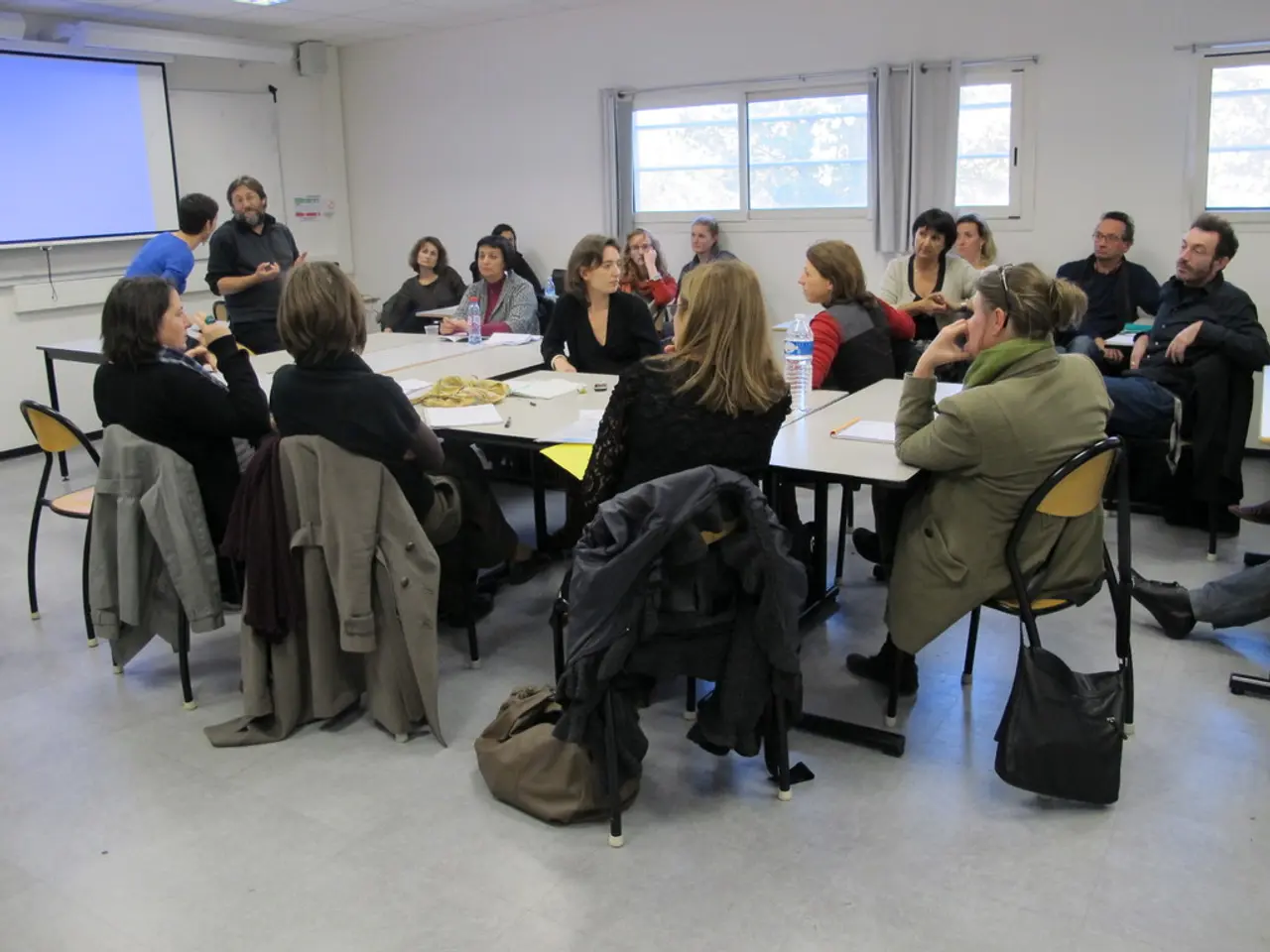Harsh summer intensifies pressure on Ursula von der Leyen's second term in office
In July 2022, Ursula von der Leyen, the President of the European Commission, faced a series of challenging events that could impact her five-year mandate. The month began with a high-stakes EU-China bilateral summit in Beijing, where tensions rose due to China's decision to curb exports of critical raw materials, hinder market access for foreign firms, and continue its "no-limits partnership" with Moscow.
Despite these challenges, von der Leyen's political position was reinforced by her re-election by the European Parliament for a second term. This election, marked by a broad coalition of centre-right, centre-left, liberal, and Green parties, signalled a continuation of her pro-Ukraine, centrist foreign policy approach and consolidated her leadership despite rising nationalist opposition within the Parliament.
However, the Commission's budget proposal, worth €2 trillion, the largest ever put forward, took the shine off von der Leyen's reputation as a reliable manager-in-chief. The proposal was marred by internal fights over the total size of the budget, the restructuring of programs, and the financial allocation for each priority. The novel idea to merge agricultural and cohesion funds into a single envelope leaked in advance, prompting immediate criticism from the powerful farming lobby.
Meanwhile, Donald Trump unveiled his "reciprocal" tariffs, triggering frantic negotiations to spare the EU from his sweeping duties. An agreement was reached to apply a 15% tariff on the majority of EU products and a 0% tariff on the majority of US products. However, no progress was made in addressing bottlenecks in the supply of rare earths or in making significant pledges on climate action, and main points of friction were left unaddressed.
Ursula von der Leyen left the summit with little to show, and the bloc made only tentative pledges to spend $750 billion on American energy and invest $600 billion in the American market by the end of Trump's mandate. Manon Aubry, the co-leader of The Left, has begun collecting signatures for a fresh attempt at a motion of censure against von der Leyen, which was ultimately rejected with 360 votes against and 175 in favor.
The motion put von der Leyen in a position of defiance, requiring her to address and reject accusations made against her. During a press conference for the budget proposal, von der Leyen was asked about her treatment of her 26 Commissioners, to which she responded that not everyone was satisfied. None of the 27 EU leaders appear to have the stomach to tear the deal apart and start negotiations from scratch.
After the motion of censure, von der Leyen focused on the Commission's proposal for the bloc's next seven-year budget (2028-2034). China's use of state subsidies to boost domestic production has provoked the fury of Brussels, adding to the challenges von der Leyen faces in navigating the EU through geopolitical challenges and internal divisions.
Ursula von der Leyen's admiration for the transatlantic alliance faced its most gruelling test on 2 April 2025, marking another significant event in her leadership journey. Despite these challenges, von der Leyen's commitment to European unity, strategic autonomy, supporting Ukraine, and maintaining internal cohesion in foreign policy remains steadfast.
In the subsequent months following July 2022, discussions surrounding policy-and-legislation became crucial, especially in the European Commission as Ursula von der Leyen navigated the EU through geopolitical challenges and internal divisions. The Commission's budget proposal, a significant piece of legislation, sparked debates among members, causing von der Leyen to address criticism and defend her leadership.
Politics continued to dominate the general-news landscape, with von der Leyen facing a motion of censure, prompting her to respond and assert her position. Despite these challenges, her commitment to European unity, strategic autonomy, supporting Ukraine, and maintaining internal cohesion in foreign policy remained unwavering.








